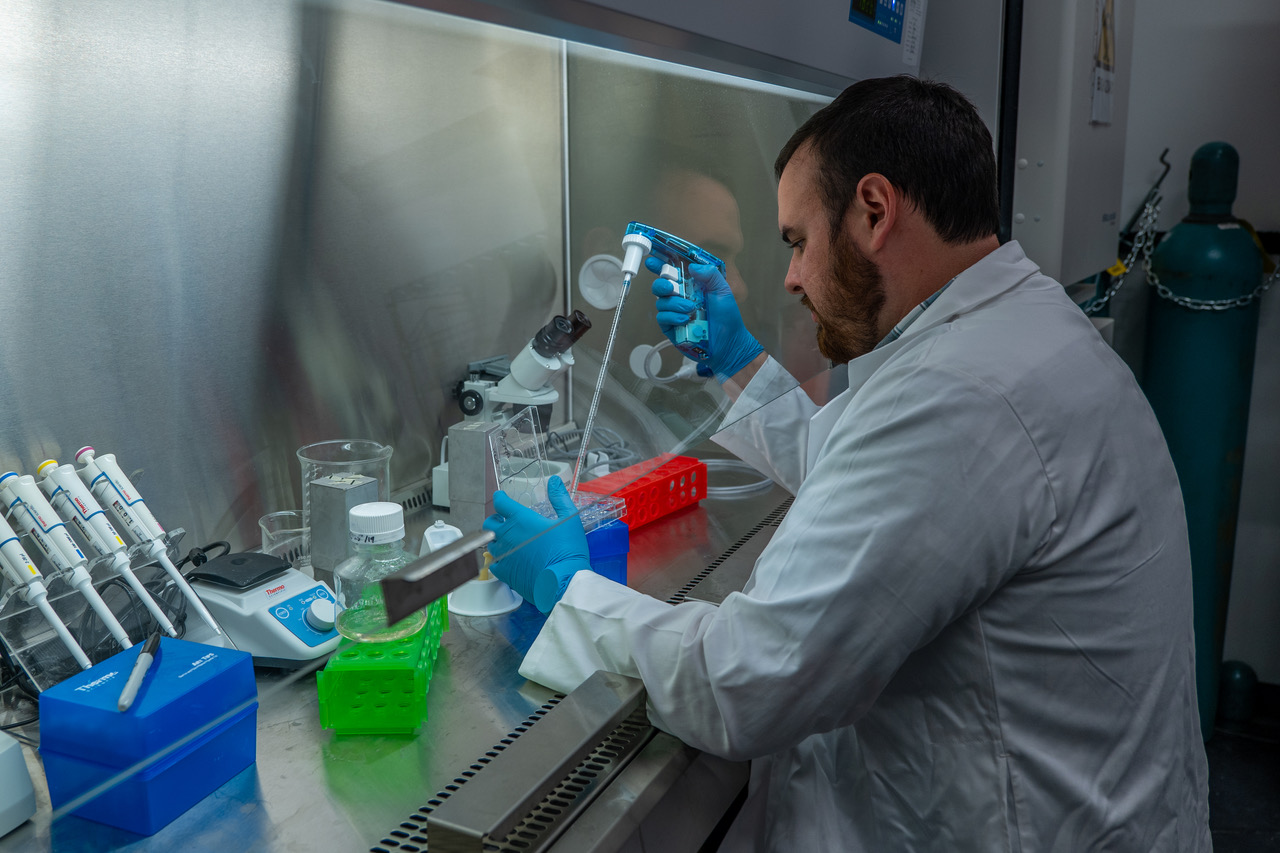ConnectingCOSAM: Tips for students who want to pursue research
Mason Parkes, a graduate student in the Department of Physics who conducts research in Michael Gramlich's lab, offers advice to undergraduate students that want to begin their journey into the world of research.
First and foremost, my advice for undergraduates who think they might be interested in research, and maybe even those who aren’t sure, is to try it! That said, I understand from personal experience that there is a lot that can get in the way of trying research out, so I’d like to share some advice about overcoming those obstacles.
One thing I worried about was wasting a professor's time, or breaking things and ruining all the work the professor was trying to do. Professors are usually happy to talk about their research, and many seem to have ideas for projects and tasks that an undergraduate can perform. Apart from that, part of the professor’s job is to educate students, and one way they can do that is in a research setting. Many professors may even enjoy that more than teaching in a classroom setting. And about breaking things, make sure you are communicating openly, especially if you don’t understand a task you’re performing or equipment that you are using.
I also worried about having time to do research with other commitments to school, work, family or friends. It is often possible to be paid for research or to get course credit, so it can still be an option for people who don’t feel like they have time to volunteer. Obviously, research experience and skills you gain while working in a lab are things you can put on a resume, and hopefully your advisor becomes someone you can ask for a letter of recommendation should you need one in whatever your next step is.
You may also worry that you don’t know enough to do research. While some professors may expect a certain knowledge base from students (getting through some point of your program or something), you aren’t expected to be an expert when you start doing research. Professors know that you are an undergrad, they’ve spent time with undergrads their entire career, they even were undergrads at some point. They know you won’t have an expert understanding of things, probably not even by the time you graduate, and especially not when you start! The thing professors look for seems to be a willingness to learn and think critically. As an undergrad I met with a professor once to talk about research with him and he started by asking me how toilets flushed. I told him I didn’t know, and he tried to get me to think through the problem. I was nervous and definitely didn’t expect to be talking about toilets and while I knew I lacked a lot of knowledge, but I didn’t think it would be plumbing skills that would be hindering me. He repeated the same procedure for how the phases of the moon worked, and I didn’t know that answer either. But the point of those discussions wasn’t to see if I knew anything about plumbing or astronomy, neither of which had anything to do with his research, he was trying to see if I could think about a problem and try to get to some sort of an answer. I’m sure that had I known about plumbing and astronomy he would have kept going until he found something I didn’t know just to see how I approached a new problem for the first time, and being willing to approach new problems is more important than knowing the answers to old ones.
I didn’t end up working with that professor, and that leads to another piece of advice, it’s okay to try out different things. You can probably get more done if you stick with a single professor, and it is probably beneficial for both of you to have a discussion about what kind of duration you are expecting for the working relationship, but if you aren’t feeling a lot of benefit from doing what you are doing it is okay to switch. You’ll work more (and probably better) doing something you enjoy. I’d recommend trying to stick to at least a semester of commitment, and communicate with your professor if you are thinking of switching things up, but don’t feel pressured to stay where you are due to some unspoken bond you think might exist.
I think my most important piece of advice is to just try it! I nearly changed my major as an undergrad just to get out of a program that required doing research. It can seem daunting, but there really isn’t too much risk in giving it a shot. If it is for you, a variety of options open up, and you might want to look into grad school or careers that involve research in some capacity. If it doesn’t work out then you’ve learned something as well, and you can move on to looking for career paths that give you more of what you want.
Latest Headlines
-
04/18/2024
-
04/18/2024
-
04/18/2024
-
04/17/2024
-
04/12/2024


